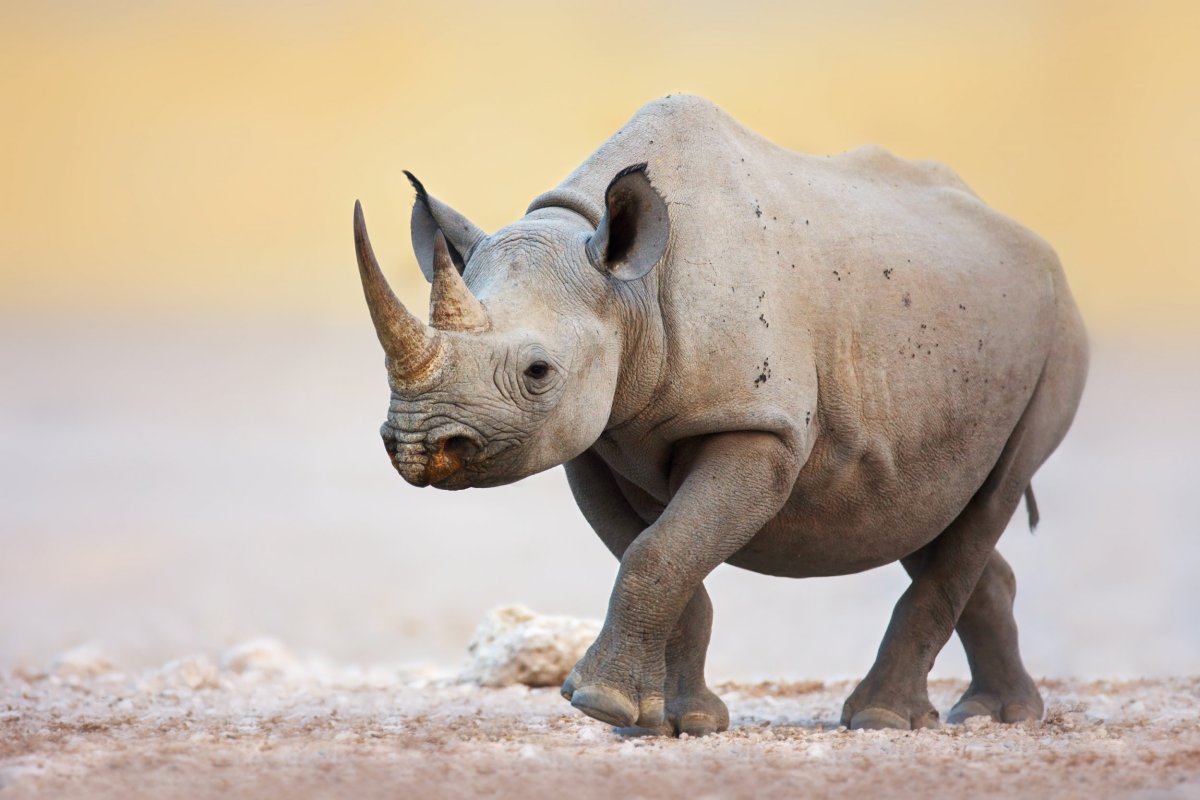The human-driven extinction of mammals is outpacing evolution, researchers report in a study. The next 50 years may see extinctions so devastating it will take 3 million to 5 million years for the animal kingdom to recover.
But human action could help stem this catastrophic loss, authors wrote in the journal PNAS. Improving conservation efforts could save "billions of years of unique evolutionary history," they reported.
The world has seen several mass extinctions, where drastic environmental change slices off many limbs from the tree of life. Millions of years of evolution helped replace lost species with new ones.
"Large mammals, or megafauna, such as giant sloths and saber-toothed tigers, which became extinct about 10,000 years ago, were highly evolutionarily distinct. Since they had few close relatives, their extinctions meant that entire branches of Earth's evolutionary tree were chopped off," study author paleontologist Matt Davis of Denmark's Aarhus University said in a statement.
Certain animals may survive extinctions because they have hundreds of species, he said. But others are far more vulnerable to collapse. There were just five species of saber-toothed tiger, for example, so "they all went extinct."
In fact, the impact of the extinction of many giant Ice Age mammals can still be felt today. It will take some 5 million to 7 million years for biodiversity to naturally recover from this loss, the authors wrote.
By destroying habitats and poaching rare animals, humans are compounding this already sorry picture. Animals like the black rhino and the Asian elephant, for example, are on the brink of disappearing.
"Although we once lived in a world of giants—giant beavers, giant armadillos, giant deer, etc.—we now live in a world that is becoming increasingly impoverished of large wild mammalian species," Jens-Christian Svenning, also from Aarhus University, said in the statement.
Even if we stop quashing species in the future, it will still take 3 million to 5 million years for mammals to rebound from the next 50 years of projected eradications alone, scientists said. What's more, "these are actually likely minimum times, as we were looking at best-case scenarios for future conservation," Davis told Newsweek.

The researchers probed reams of data to produce their estimates. "We [assembled] a large database of all mammals that had lived since the end of the Ice Age and figure out how they were all related to each other, a task that took months," Davis said. This allowed the team to evaluate the impact humans have already had on mammal diversity. They used cutting-edge computer simulations to map how much evolutionary time might be lost by impending extinctions.
"The calculations weren't easy. It took months of running powerful computers nonstop to finish the simulations," Davis added.
The team was surprised by the severity of their results, he said. They didn't realize just how evolutionarily isolated so many large mammals were from other branches of the tree of life.
"The potential sixth mass extinction that we are entering now was almost a perfect one-two punch. With the extinction of so many megafauna, we lost both our largest animals and some of the longest branches on the tree of life," Davis said. "This kind of pattern isn't common in the extinctions we know of from the fossil record, so we are now entering uncharted territory."
Outside experts think these estimates are on the conservative side. "I think the recovery periods cited are much too optimistic," Timothy Krantz, an environmental sciences professor at the University of Redlands in California, told Newsweek. A runaway greenhouse effect could have a far more dramatic effect on wildlife, he explained. "This kind of extinction event would be more similar to the meteoric collision that brought about the demise of the dinosaurs—or perhaps even more extreme," he said.
Paleontologist Kenneth Lacovara, from Rowan University's School of Earth & Environment, agreed that today's biodiversity crisis resembles the rapid extinction that killed off the dinosaurs. "We are the asteroid of our age," he told Newsweek. "While mammals might regain their lost biodiversity in 5 million to 7 million years, the mammalian fauna will never be restored to its previous state. We've broken Earth ecosystems, and a recovery in numbers, will not be a recovery in kind."
But the study authors think their data might help identify evolutionarily distinct species at risk of extinction. By helping save species like rhinos, conservationists could stop whole branches of the evolutionary tree from vanishing.
"It is much easier to save biodiversity now than to re-evolve it later," Davis said in the statement. Government action, he told Newsweek, will be required to protect endangered species. "A lot of good work can be done at the grass-roots level, but major global threats require global solutions," he added.
This article has been updated to include comment from Matt Davis, Kenneth Lacovara and Timothy Krantz.
Uncommon Knowledge
Newsweek is committed to challenging conventional wisdom and finding connections in the search for common ground.
Newsweek is committed to challenging conventional wisdom and finding connections in the search for common ground.
About the writer
Katherine Hignett is a reporter based in London. She currently covers current affairs, health and science. Prior to joining Newsweek ... Read more
To read how Newsweek uses AI as a newsroom tool, Click here.








